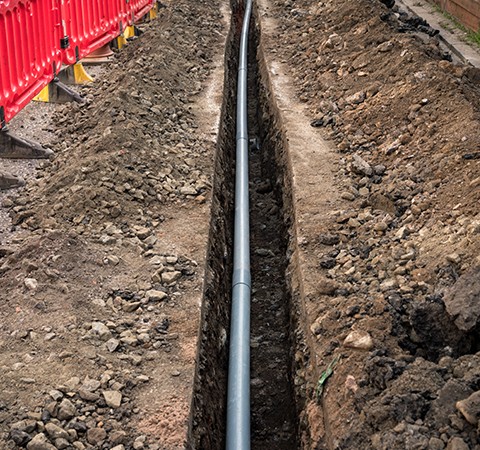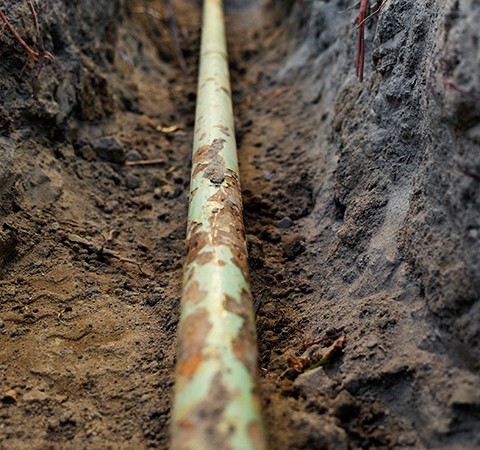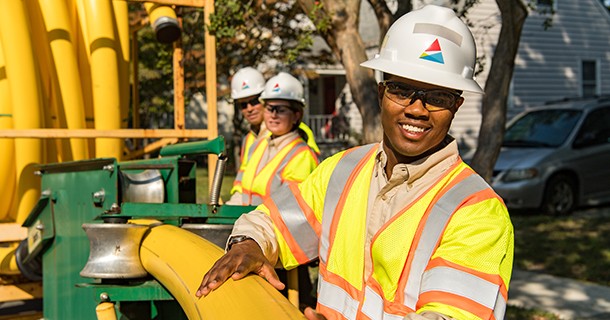Pipeline Safety
At Atlanta Gas Light, our priority is the safety of our customers and our employees. We are committed to maintaining safe and reliable natural gas pipeline infrastructure that serves the needs of customers, including emergency preparedness. We work with local and regional emergency response officials located near our pipeline facilities to ensure a better understanding of the nature of our infrastructure and our emergency preparedness plans. AGL also works closely with state and federal regulatory agencies to ensure that the company complies with the various pipeline safety laws and regulations.

Underground Pipeline Markers
Natural gas companies, including Atlanta Gas Light, install above ground pipeline markers to indicate the approximate location of buried large diameter, high pressure gas transmission lines. These line markers display the name of the pipeline operator and the telephone number where the operator can be reached in case of an emergency. Line markers are placed at public road crossings except in urban areas. Pipeline markers and warning signs indicate only the presence of a pipeline. They should not be used or relied upon to determine the exact location of the pipeline.
What We Do To Keep You Safe
Our Gas Control Operations Center continuously monitors the flow of natural gas through our pipelines and any changes in operating conditions. Our employees have the ability to adjust flows and operation pressures, and to shut off natural gas flowing in our larger pipelines.

Maintaining Your Gas Pipes
Atlanta Gas Light is responsible for maintaining the gas lines that deliver natural gas to the meter at your home or business. You are responsible for maintaining the gas lines from the meter to the natural gas-burning appliances throughout your home, business and property – indoors and outdoors, above and below ground. Don’t forget that you may have gas lines extending to yard lights, grills, pool heaters and garage or workshop heaters.
If there is more than three feet between your meter and your home, Atlanta Gas Light will monitor the primary pipeline. However, you are still responsible for repairs. (Atlanta Gas Light does not monitor any fuel lines after the meter for business customers.)
You should periodically have your buried gas piping inspected for corrosion and leaks and have repairs made if any unsafe condition is found. Also, any repairs, locating and appliance connector replacements and inspections should only be performed by a plumbing contractor, heating contractor or other qualified professional. When excavating near buried gas piping, the piping should be located in advance, and the excavation done by hand.
Pipeline Integrity Management Plan
Pipeline integrity management is a process for assessing and mitigating pipeline risks in an effort to reduce both the likelihood and ramifications of incidents.



